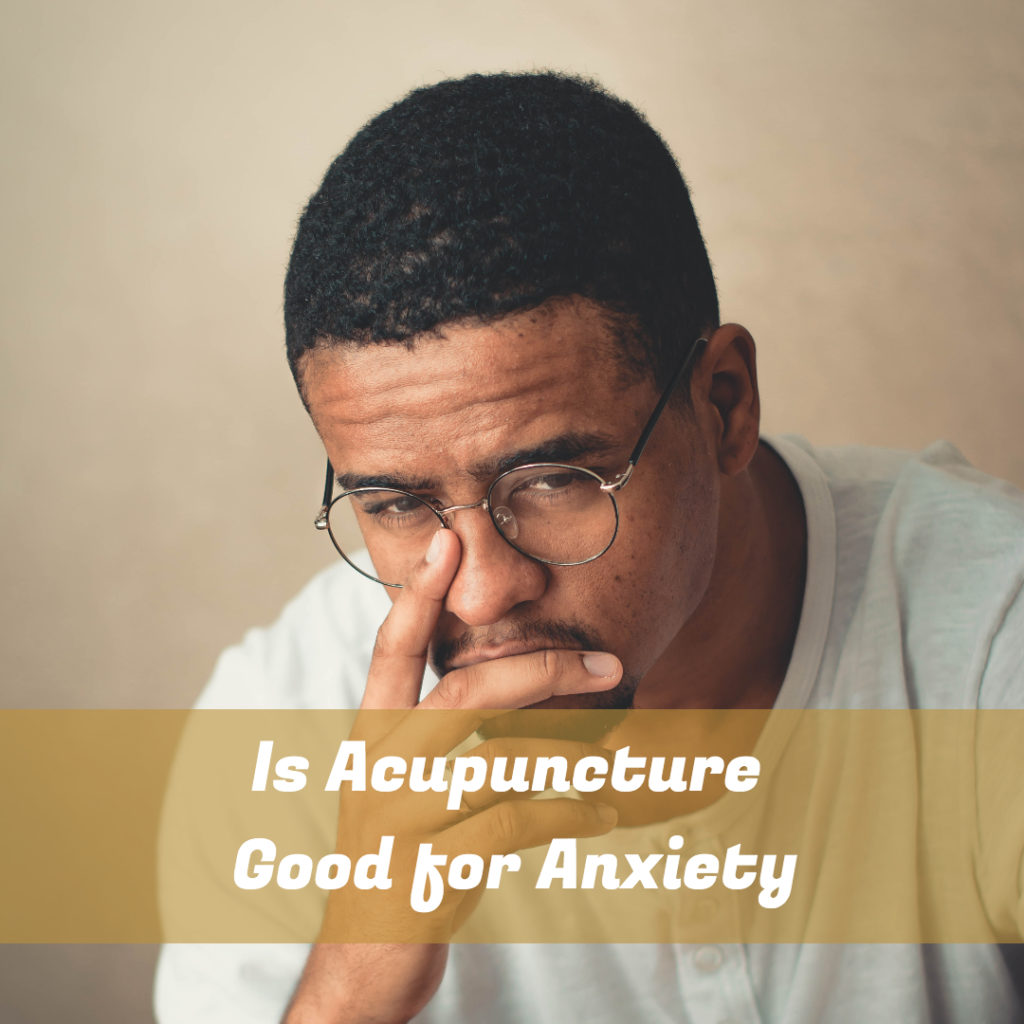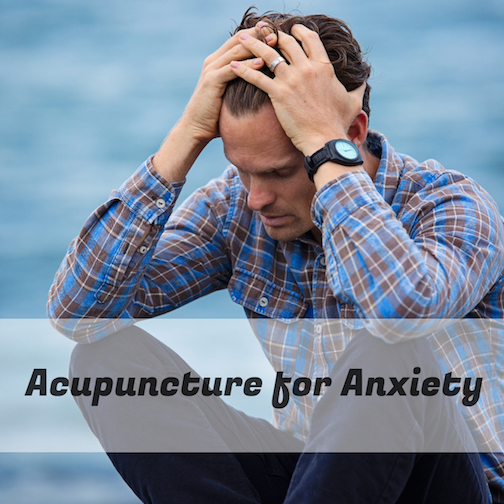Anxiety is the most common mental illness in the U.S. affecting 40 million adults 18 and older, and 25.1% of children between 13-18 years old. According to the Anxiety and Depression Association of America (ADAA), anxiety disorders develop from a certain set of risk factors including brain chemistry, personality, genetics, and life events.
There are a variety of anxiety disorders such as PTSD, Obsessive Compulsive Disorder (OCD), and social anxiety. Anxiety, amongst other mental illnesses can all be treated with acupuncture. For thousands of years, acupuncture and Traditional Chinese Medicine (TCM) has helped alleviate these conditions, and modern medicine is finally catching up and catching up as to how/why acupuncture works for anxiety.
What is Anxiety?
Most, if not all, people experience anxiety from time to time. For the majority, these feelings of anxiety only last a short period of time, from a few minutes to a few days. For some, anxious feelings are more than passing feelings and may not go away for many weeks, months, or even years, and can potentially worsen over time. The persistent anxious feelings and thoughts sometimes become so severe that it disrupts daily life & activities. When this is the case, you may be diagnosed with an anxiety disorder.
While the symptoms can vary from person to person, there are some recognizable symptoms of anxiety. In this state, the person is on high alert activating their fight or flight responses.
Symptoms of Anxiety:
- Nervousness or tense feeling
- Feelings of panic or dread
- Rapid breathing
- Increased sweating
- Rapid heart rate
- Insomnia
- Digestive or gastrointestinal problems
- Difficulty focusing or thinking clearly about anything else other than that which you’re anxious about
- Trembling or muscle twitching
Someone with anxiety may also experience a panic attack, a sudden onset of fear or distress that peaks within minutes. It also involves some more severe versions of the symptoms above as well as ones unique to panic attacks.
Some symptoms of a panic attack include:
- Sweating
- Shaking
- Chest pain or palpitations
- Nausea
- Dizziness
- Tingling sensations
- Fear of losing control
- Fear of dying
- Feeling short of breath or smothered
It is not uncommon for someone with anxiety to also be diagnosed with other mental disorders, most commonly depression. Women are also twice as likely, according to the ADAA, to be affected by anxiety.
Acupuncture for Anxiety Treatment
Acupuncture is a popular treatment for anxiety because it is stress-relieving and little to no side effects when compared with other options. When you go in for acupuncture treatment for your anxiety you’ll be asked to provide your medical history to your acupuncturist. This includes current medications and any diagnoses you may have been given already in regards to your anxiety. He or she will then determine which acupuncture points would best suit your specific type of anxiety, and a devise a treatment plan best suited for your needs.
Acupuncture Points for Anxiety:
- GV11 – Shendao – Spirit Path – located along the spine about halfway down the shoulder blades, and is said to be along the “heart” line on the back (a horizontal line on the back with acupuncture points that are good for emotional problems.
- GV24 – Shenting – Spirit Courtyard – located at the center line of your head about half inch into the hair line, and is said to “quiet” the heart and calm the spirit. Point for anxiety, palpitations, insomnia, and headaches among other things.
- EX-HN3 – Yintang – Hall of Impression – this is an “extra” point since it is not technically on a meridian, but is on the same line as the two points above. Located between the eyebrows, it is a calming point said to calm the spirit.
- N-HN54 – Anmian – Peaceful Sleep – this is another “extra” point that is not technically on a meridian. It is located on the back of the head at the base of the skull in the depression behind the ear lobe. Used for emotional problems, headaches, palpitations, and insomnia.
- PC6 – Neiguan – Inner Gate – located slightly above the wrist, and said to calm the heart and the spirit.
Any of these points can be used for acupressure as well when you are feeling anxious during the day to calm, ground, and relax you.

Acupuncture Benefits for Anxiety
In traditional Chinese medicine, energy, or “qi” moves through the pathways of the body on the meridians (for which there is one for every organ in the body). When energy is blocked, excessive, deficient, or out of balance, acupuncture allows for restoration of balance and encourages healing.
In the case of anxiety, acupuncture stabilizes our two nervous systems; the sympathetic (fight or flight), and the parasympathetic (the system we want to operate in most of the time). Acupuncture also has the benefit of helping us to relax, and shift into our parasympathetic nervous system.
In a nutshell, there are two main features of acupuncture for anxiety:
- It takes the body out of the sympathetic nervous system – when our sympathetic nervous system revs up, the intention is to keep us safe. However, when it is consistently switched on by stressful triggers it results in high levels of anxiety. Acupuncture brings the body back to the parasympathetic system where things are slowed down and stressful daily life events wont completely unnerve you.
- It stabilizes and balances the body – Acupuncture will have a ripple effect addressing your anxiety as well as improving things like sleep, digestion, and energy level.
The shift back into the parasympathetic nervous system changes our neurochemistry involved in emotional regulation by increasing our “happy” hormones.
The “happy” hormones released during acupuncture treatments are:
- Epinephrine
- Serotonin
- Dopamine
- Norepinephrine
These hormones help to leave you with a sense of well-being and happiness. The shift also helps by decreasing our “stress” hormone, cortisol. With the insertion of the hair-thin needles into specific acupuncture points you are telling your body where to focus its own healing power.
The key to success with acupuncture treatment for anxiety is to be consistent with the treatment plan that is provided by your acupuncturist. Obviously, every person/diagnosis is different, but to see long lasting results, regular treatments are best especially in the beginning. Start off having your acupuncture treatments closer together – once or twice per week – because you’re retraining your body to operate outside of fight or flight mode.
If treatments are too spaced out in the beginning it is easy to slip back into those patterns of being. Once you start feeling the effects of the acupuncture you can scale back the number of treatments to once a week, once a month, and so on. Those with long-time trauma may need to attend sessions longer than someone with acute anxiety.
Does Acupuncture Work for Anxiety?
There are several studies on the benefits of acupuncture for anxiety, with a few notable ones that show promising results in regards to how acupuncture can help patients with this condition.
Acupuncture for Anxiety 2015 Research Study:
- Patients with anxiety who had previously not responded to other treatments like psychotherapy and standard medications had improved symptoms with acupuncture.
- Patients participating in the study received ten 30-minute acupuncture sessions over 12 weeks, and they felt a substantial reduction in their anxiety even in the 10 weeks following their treatments.
Acupuncture for Anxiety 2016 Research Study:
- Found acupuncture to be effective for reducing anxiety
- Effects of acupuncture for anxiety is likely related to the regulation that acupuncture provides upon treatment with specific peptides released in the adrenal gland. Basically, impacting how the body triggers the fight or flight response.
Acupuncture for Anxiety 2018 Meta-analysis Research Study:
- Clinical trials where anxiety was treated as the main condition with acupuncture were considered for analysis. Researchers searched through 1,135 papers addressing anxiety as the primary treatment condition, and after review, 13 papers were found to match their criteria for the analysis.
- Overall, they found scientific evidence that acupuncture treatment for anxiety has effective results with fewer side effects than standard treatment for this condition. More research, of course, is always needed.
Reduce Anxiety with Acupuncture Treatments
While anxiety is a well-known condition, it is not well-known that there are more treatment modalities available to ease anxiety. According to the adaa, anxiety disorders are highly treatable, but only 36.9% of people who suffer from it receive treatment. Whether that means they believe it will resolve itself or if they maybe don’t have access to traditional treatment methods like therapy and/or medications. Acupuncture is a viable and proven treatment option for anxiety, and is also a way to regulate how many opioids one is being prescribed and ingesting.
If you are interested in treating your anxiety symptoms with acupuncture sessions, you will first need to find a licensed acupuncturist to perform your acupuncture treatment. Licensed acupuncturists are required to use sterile, disposable needles (which if inserted properly, should not hurt), and will have the proper credentials.

Acupuncture for Anxiety Near Me
Get acupuncture near you today with Best Acupuncture Near Me, and contact a local acupuncture practitioner to find out if acupuncture for anxiety is right for you.

